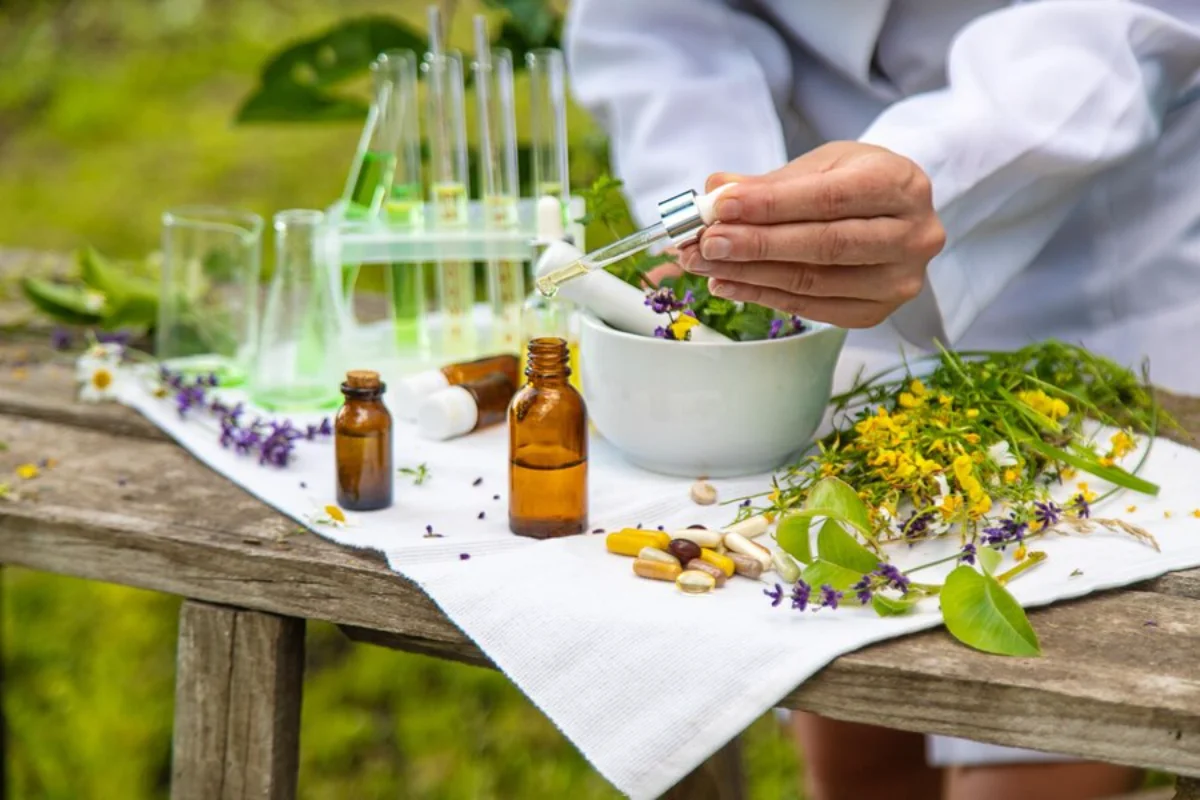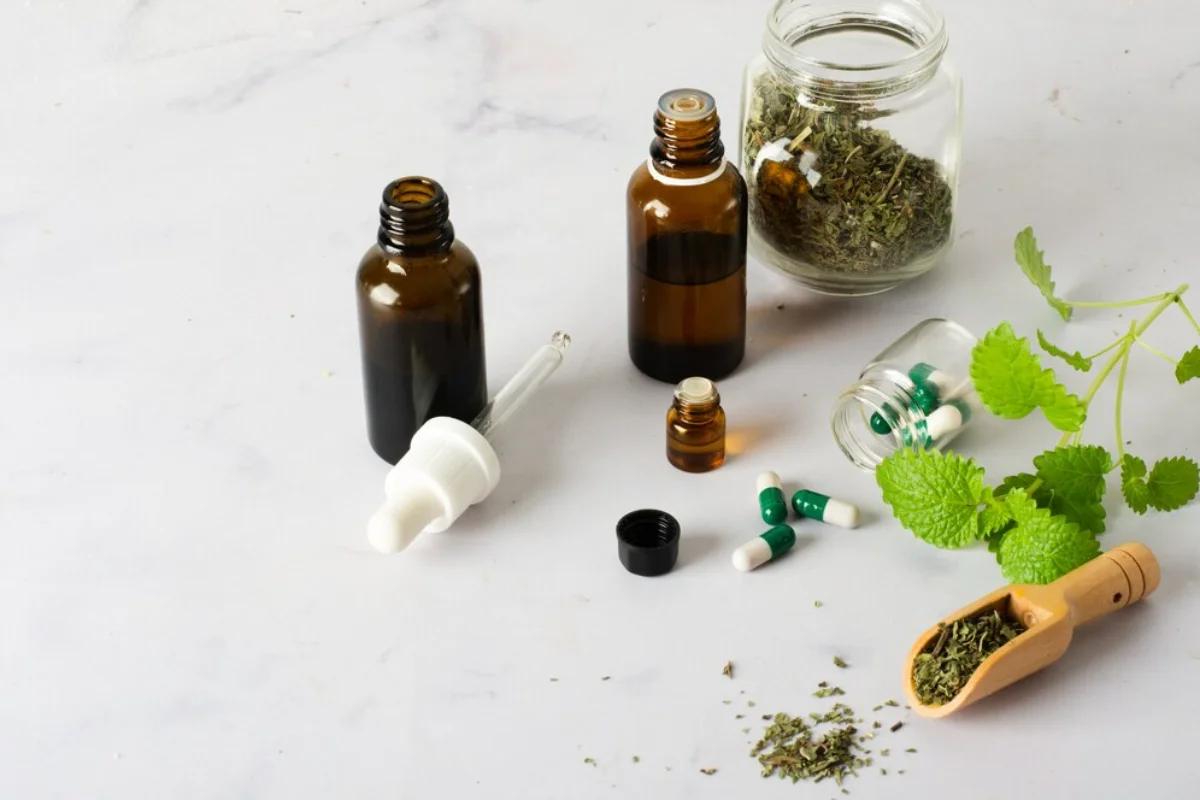
How Herbal Medicine Can Support Your Health
Recently, there has been a widespread shift towards natural and holistic health practices. For centuries, herbal medicine has been used to promote well-being and treat various ailments. As more people learn about the power of natural remedies, many are incorporating herbal medicine alongside conventional treatments to enhance their overall health.
Herbal medicine, botanical medicine or phytotherapy, involves using plant-based substances to support health and treat disease. This centuries-old tradition is becoming increasingly popular as people seek natural alternatives to pharmaceutical drugs. This guide explores how herbal medicine can benefit your health, the best herbal remedies, and how to take herbal supplements safely.
Key Benefits of Herbal Medicine

The Relevance of Herbal Medicine in Modern Health
Herbal medicine provides numerous benefits for individuals seeking natural remedies for various health concerns, ranging from minor ailments to chronic conditions. Herbs can support the immune system, aid digestion, reduce inflammation, and even enhance mental clarity.
Pro Tip: Start with Single Herbs- If you’re new to herbal medicine, begin with one herb at a time to assess its effects on your body.
Real-Life Applications
- Immune Support: Herbs like echinacea and elderberry can boost the immune system and help prevent and treat colds and flu.
- Digestive Health: Ginger and peppermint aid digestion, with ginger alleviating nausea and peppermint soothing symptoms of irritable bowel syndrome (IBS).
- Anti-Inflammatory Effects: Turmeric, with its active compound curcumin, is widely known for its ability to reduce inflammation and relieve joint pain.
- Mental Health Support: St. John’s Wort and valerian root are used to support mental well-being. St. John’s Wort is often recommended for mild depression, and valerian root is used for anxiety and insomnia.
Pro Tip: Keep a Health Journal- Record your experiences with herbal remedies to track their benefits and identify any side effects.
Data-Backed Insights
Scientific research supports the efficacy of many herbal remedies.
For instance:
- A study published in the Journal of Medicinal Food found that ginger significantly reduced nausea and vomiting during pregnancy.
- Research in the Journal of Clinical Psychopharmacology highlighted the potential of St. John’s Wort in treating mild to moderate depression.
Quick Guide to Use Herbal Medicine

Step 1: Identifying the Right Herbs
Start by researching herbs that align with your health needs. Learning about their properties can help you determine the most beneficial ones. It is advisable to consult a qualified herbalist or naturopath to ensure you choose the right remedies.
Step 2: Preparing Herbal Remedies
Herbal remedies come in various forms, each offering unique benefits:
- Teas: Steeping dried or fresh herbs in hot water is one of the easiest ways to consume herbal medicine. Popular options include chamomile for relaxation and peppermint for digestion.
- Tinctures: These are concentrated herbal extracts made by soaking herbs in alcohol or vinegar. They are convenient for daily use, as only a few drops are needed.
- Capsules: Herbal supplements in capsule form provide precise dosages and are easy to incorporate into daily routines. This form is common for herbs like turmeric and echinacea.
- Topical Applications: Some herbs can be applied directly to the skin through ointments or creams. Calendula and aloe vera are frequently used for skin irritation and wound healing.
Important Tip: Stay Informed– Research on herbal medicine is ongoing. Keeping up with new findings can help you use herbs more effectively.
Step 3: Understanding Dosage and Safety
The correct dosage is crucial for safe and effective herbal use. Dosages can vary based on age, weight, and the treated condition. Always follow recommended guidelines and consult a healthcare professional if unsure.
Safety considerations include:
- Checking for Allergies: Some herbs can cause allergic reactions, so always test new remedies in small amounts.
- Avoiding Drug Interactions: Certain herbs can interact with prescription medications. For example, St. John’s Wort may interfere with antidepressants and birth control pills.
- Following Proper Preparation Methods: Some herbs must be processed correctly to avoid toxicity. For example, raw coffee contains alkaloids that can harm the liver.
Common Mistakes and Misconceptions
- Overreliance on Herbs: While herbs can be highly beneficial, they should not replace essential medical treatments for severe conditions.
- Ignoring Professional Advice: Always consult a healthcare provider, especially if taking other medications.
- Assuming All Herbs Are Safe: Not every herb is suitable for everyone. Some herbs, like kava, have potential side effects and should be used cautiously.
Advanced Insights and Expert Recommendations

Unique Industry Perspectives
Traditional Chinese Medicine (TCM) and Ayurveda emphasise a holistic approach, considering the mind, body, and spirit in treatment. These practices often incorporate herbal medicine as part of a broader wellness strategy.
Lesser-Known Insights
- Adaptogens: These herbs help the body adapt to stress and maintain balance. Ashwagandha and Rhodiola are popular choices for boosting resilience and energy.
- Herbal Medicine for Prevention: Herbs are used to treat illness and prevent disease. Regular use of immune-boosting herbs can enhance long-term health.
Secret Tip: Start with Adaptogens for Stress Relief. Adaptogenic herbs like Ashwagandha and Rhodiola can help your body manage stress and maintain balance over time. Incorporating them into your daily routine can improve your overall resilience to life’s challenges. Take these herbs in capsule form or as tea for a calm, balanced day. Always start with a small dosage and adjust as needed.
Frequently Asked Questions
1. How do I know which herbs are safe for me?
Consult a healthcare professional or herbalist before trying new herbs, especially if you have underlying health conditions or take prescription medications.
2. Can herbal medicine replace prescription drugs?
Herbal remedies can complement traditional medicine but should not replace prescribed treatments unless advised by a healthcare provider.
3. How long does it take for herbal medicine to work?
The effects of herbal medicine vary depending on the herb and the individual. Some, like chamomile tea, work almost immediately, while others, like adaptogens, may take weeks to show noticeable benefits.
4. Are there any side effects of herbal medicine?
While generally safe, some herbs can cause side effects such as digestive upset or allergic reactions. Always start with small doses and monitor your body’s response.
5. What is the best way to incorporate herbal medicine into daily life?
Start with simple methods like drinking herbal teas, adding spices like turmeric to meals, or taking supplements as needed. Consistency is key to experiencing long-term benefits.
Supporting Your Health with Herbal Medicine
Herbal medicine offers a natural and effective way to support health and is good for relieving stress. You can tap into their power to improve your overall wellness by educating yourself on how to use herbal remedies safely.
Whether you start with a simple herbal tea or a carefully chosen tincture, listening to your body and adjusting your approach as needed is key. A personalised herbal regimen can help you maintain health and prevent future issues.
Have you used herbal medicine in your health journey? What remedies have worked best for you? Share your experiences in the comments below!